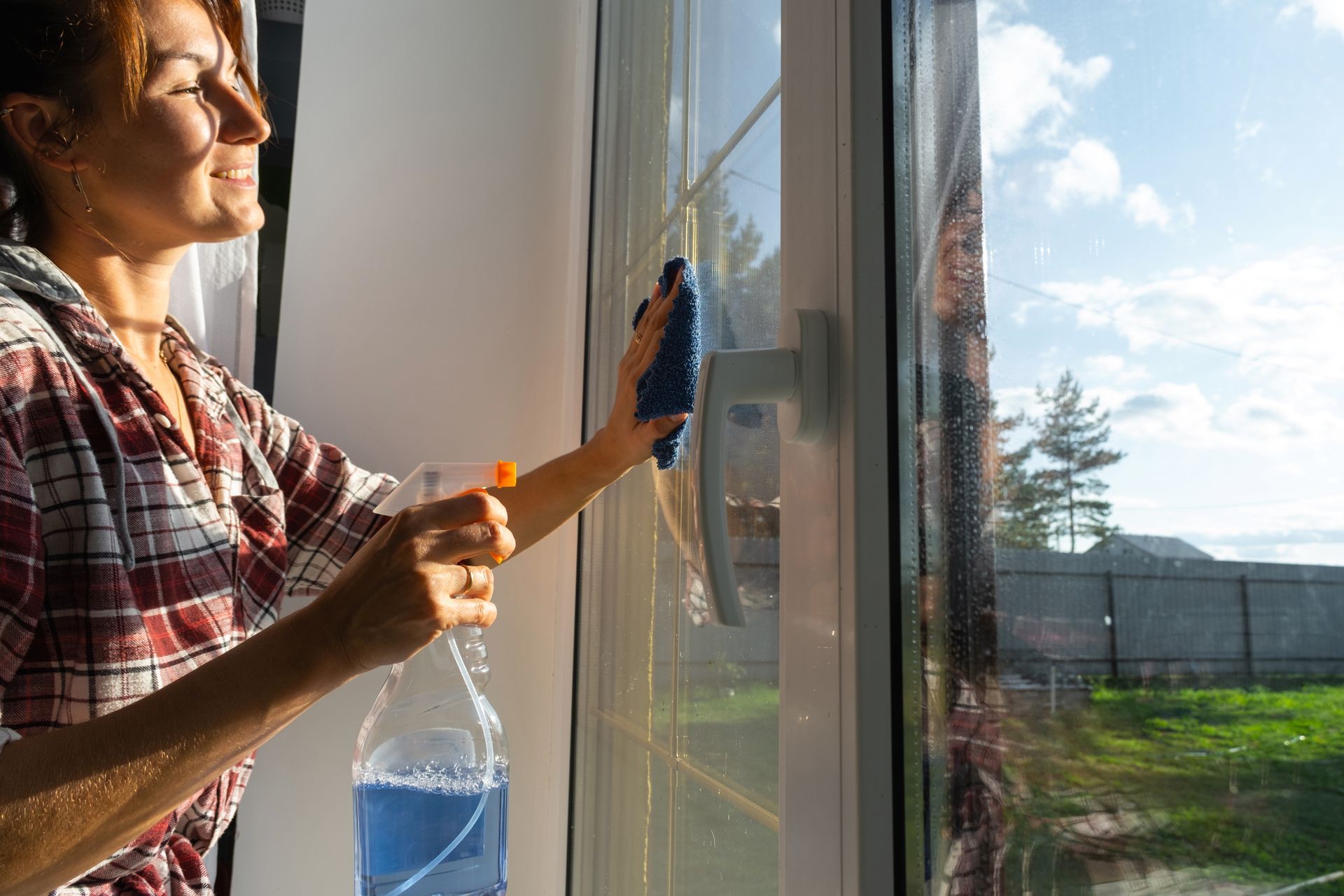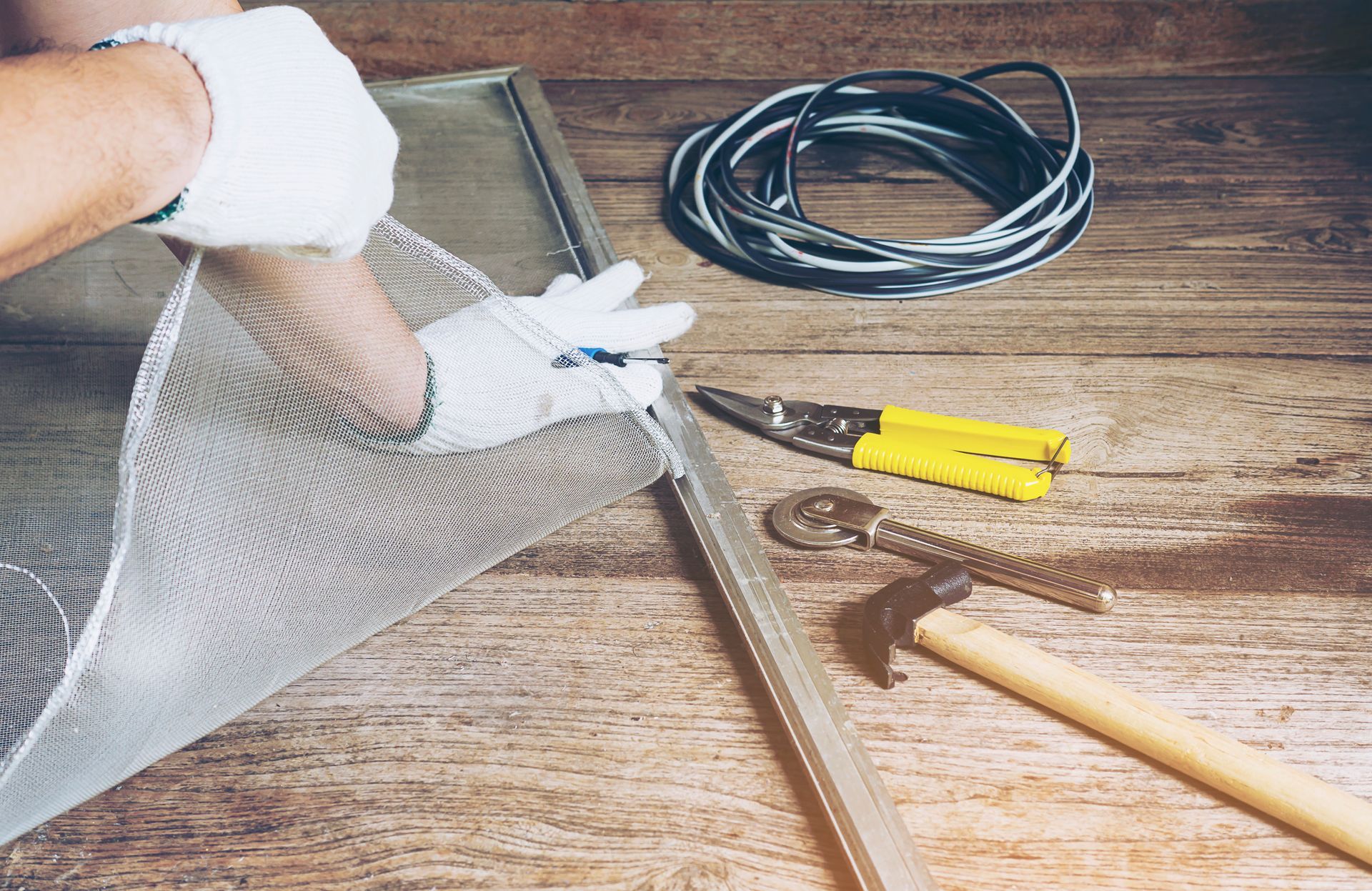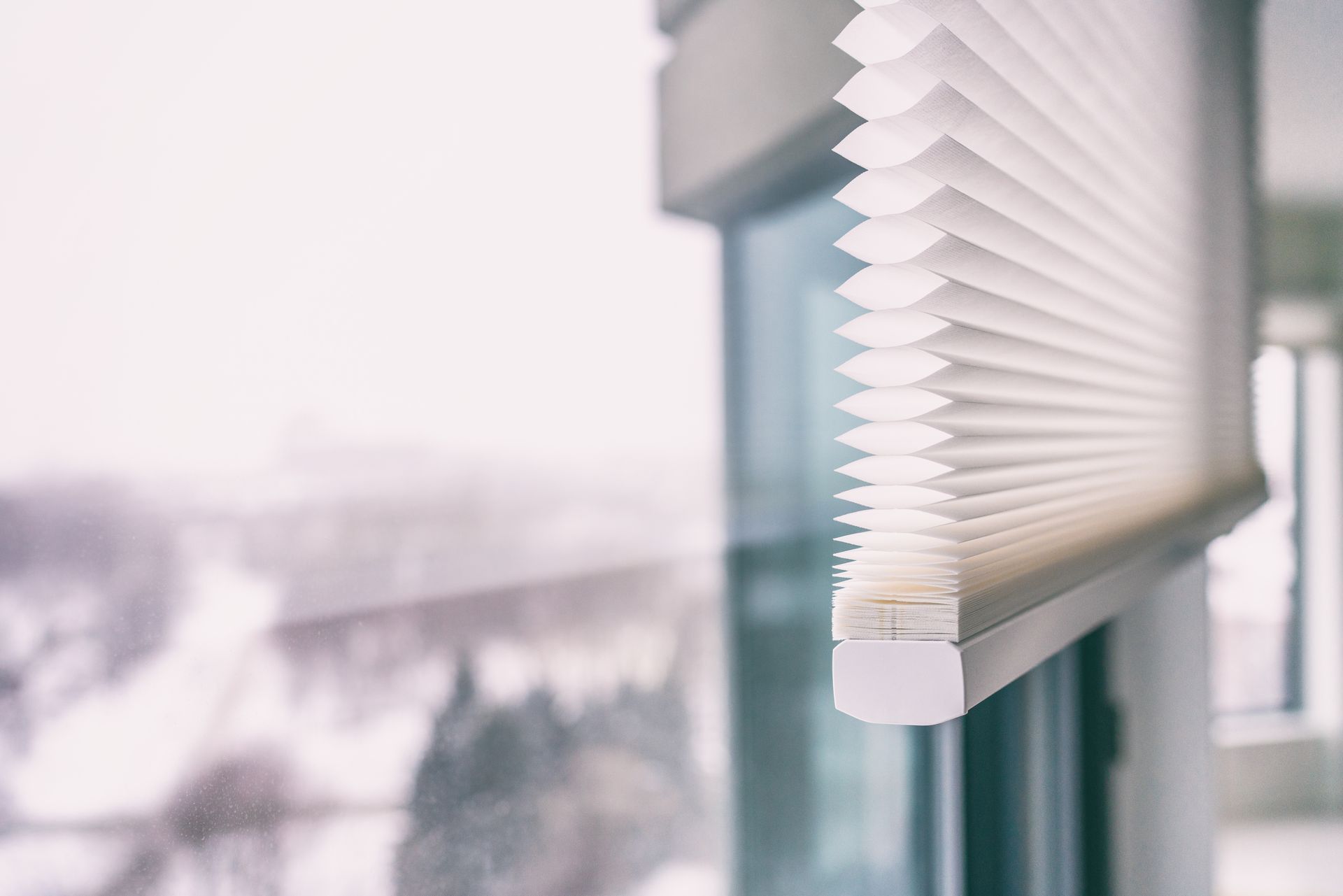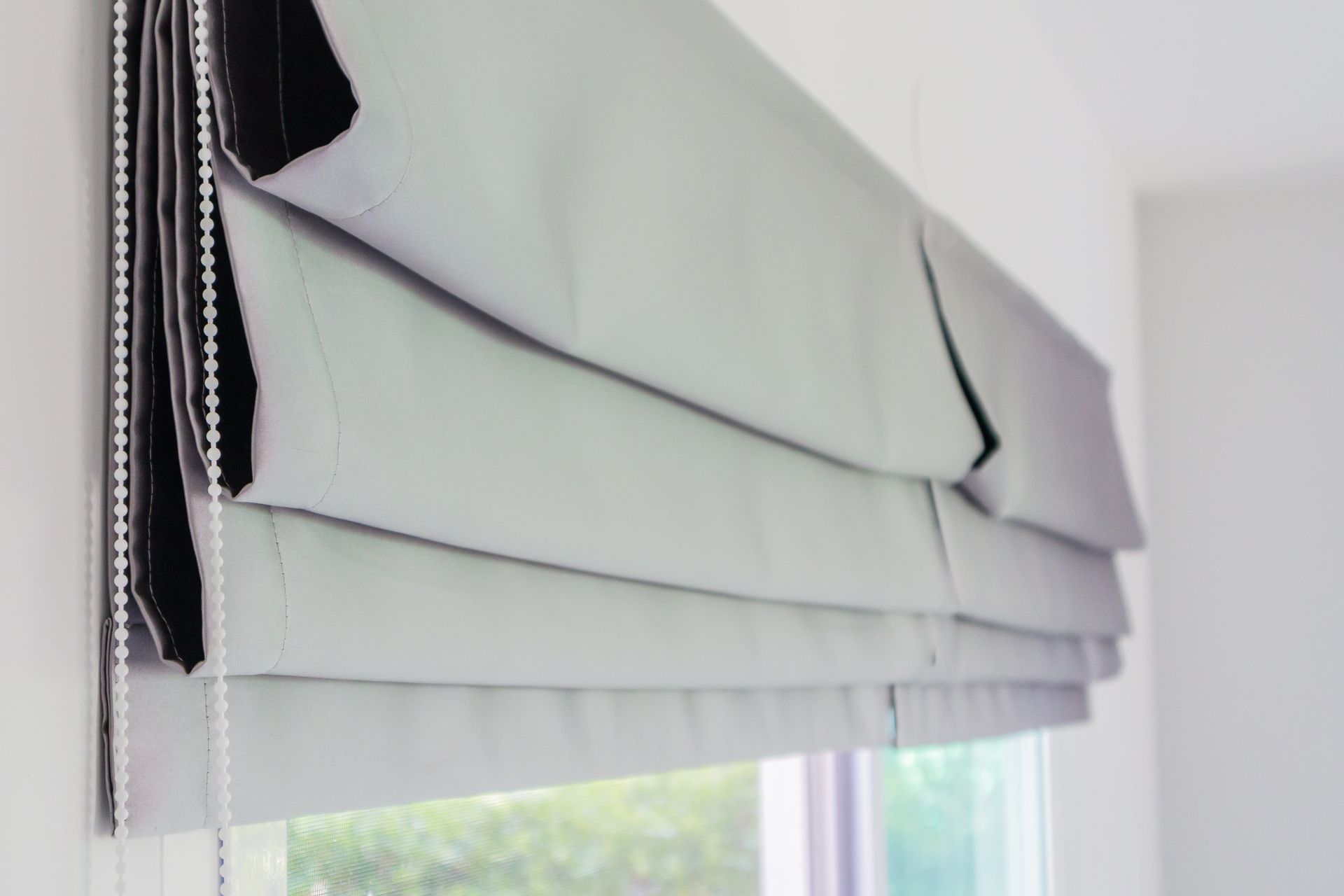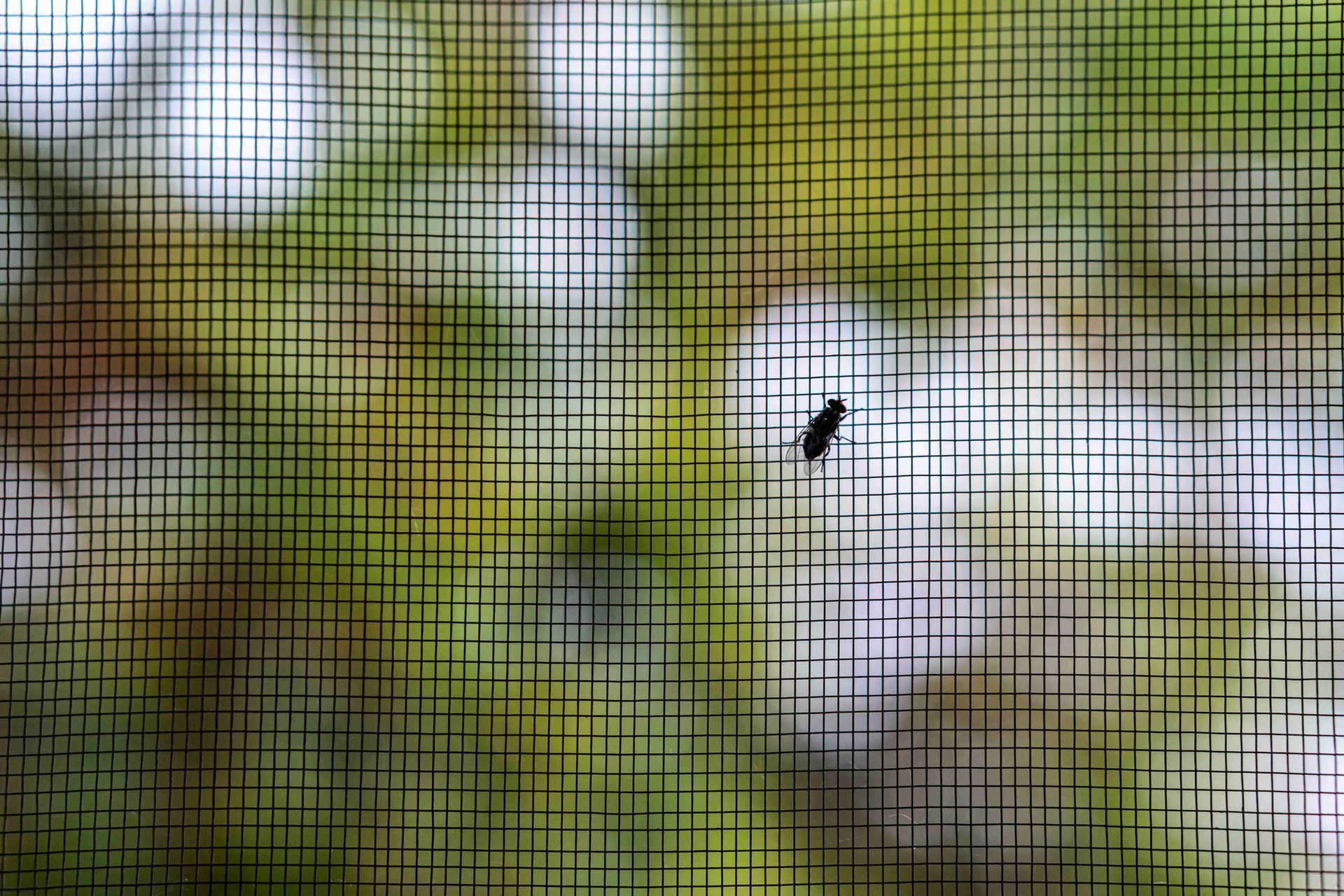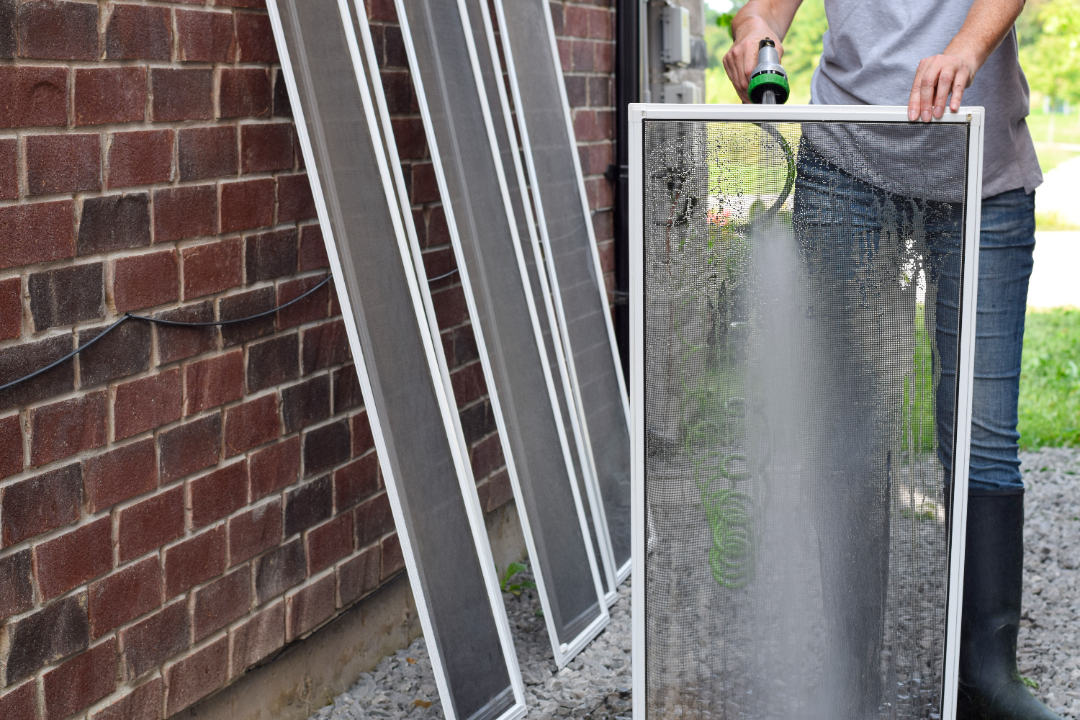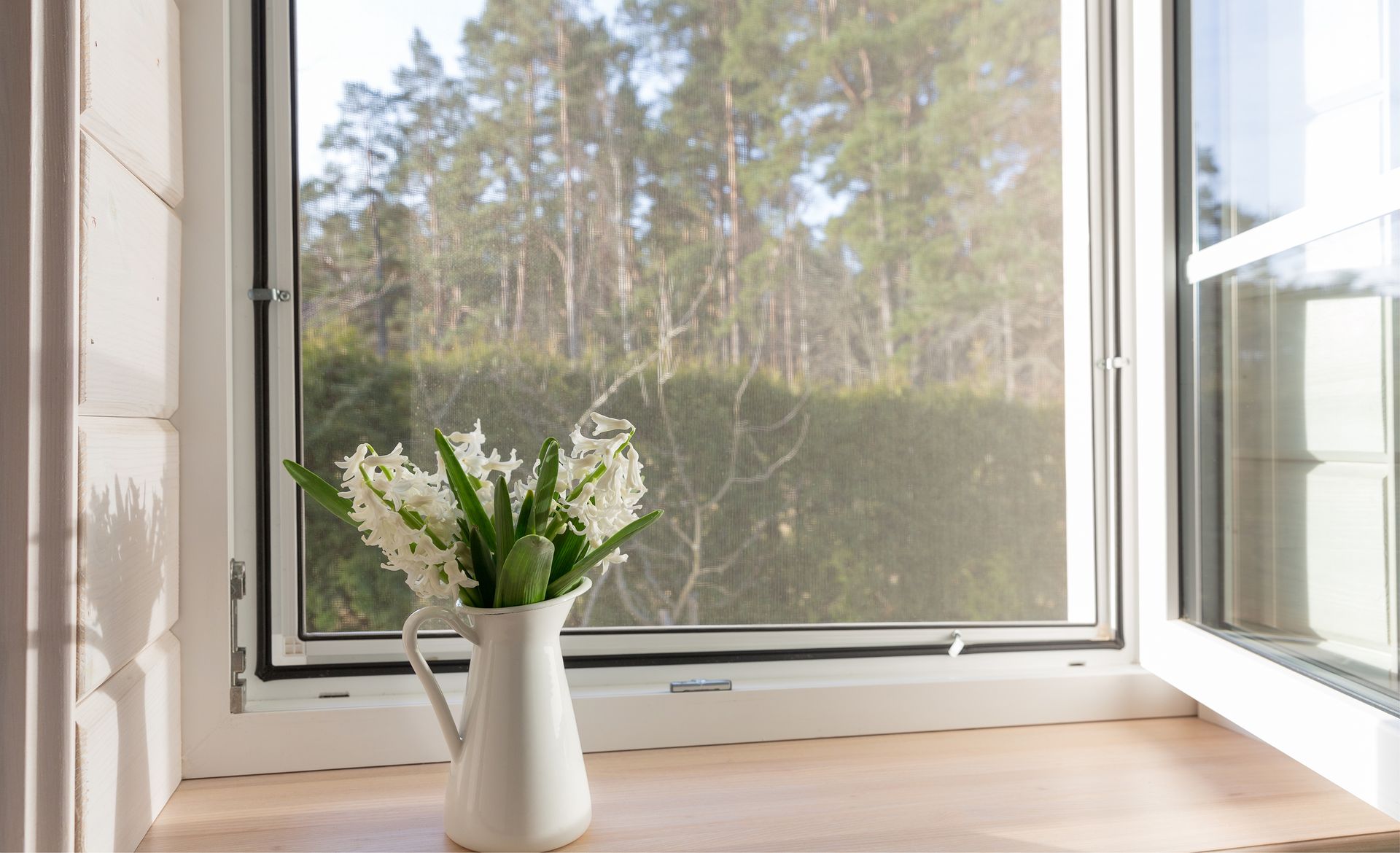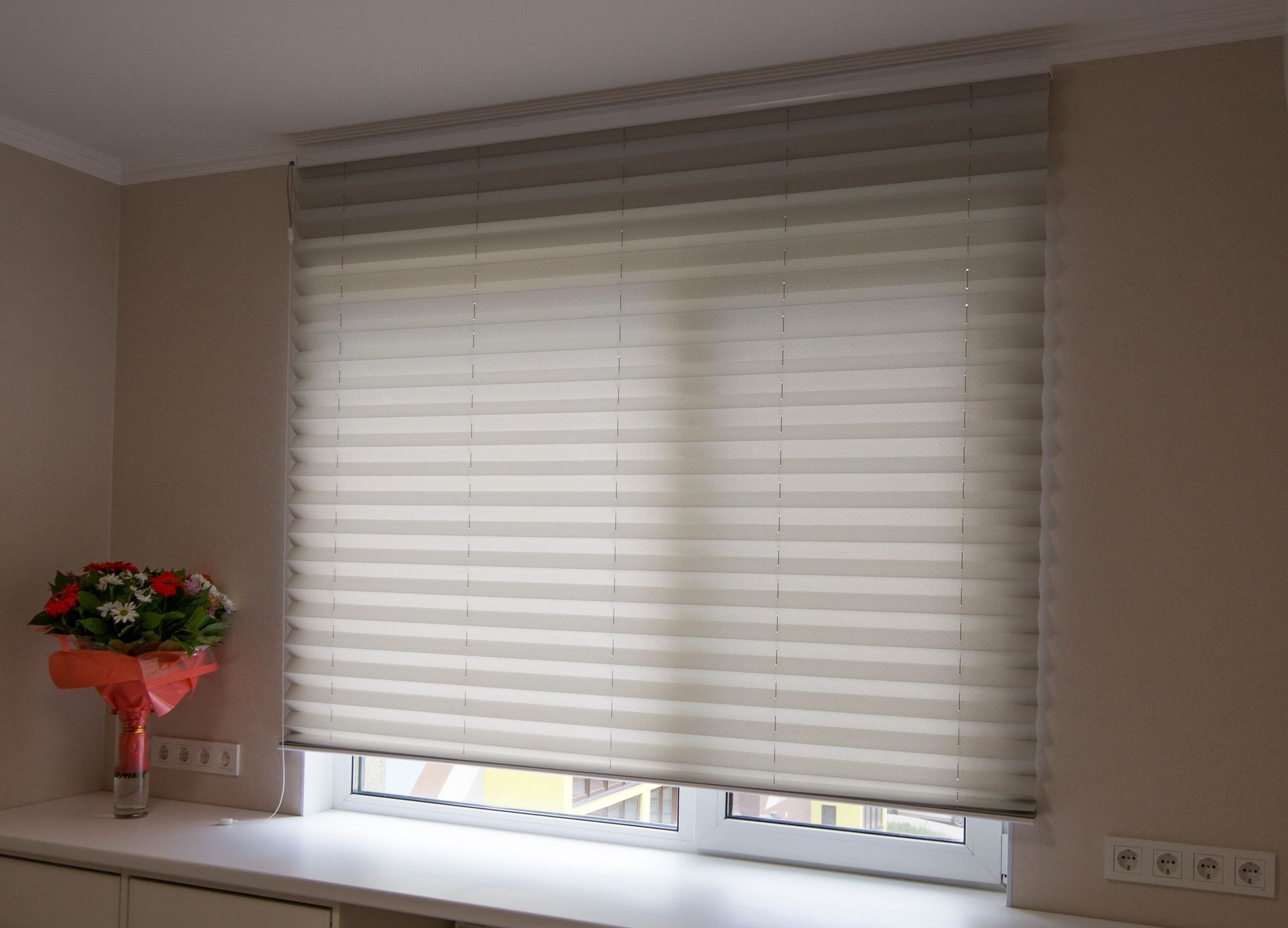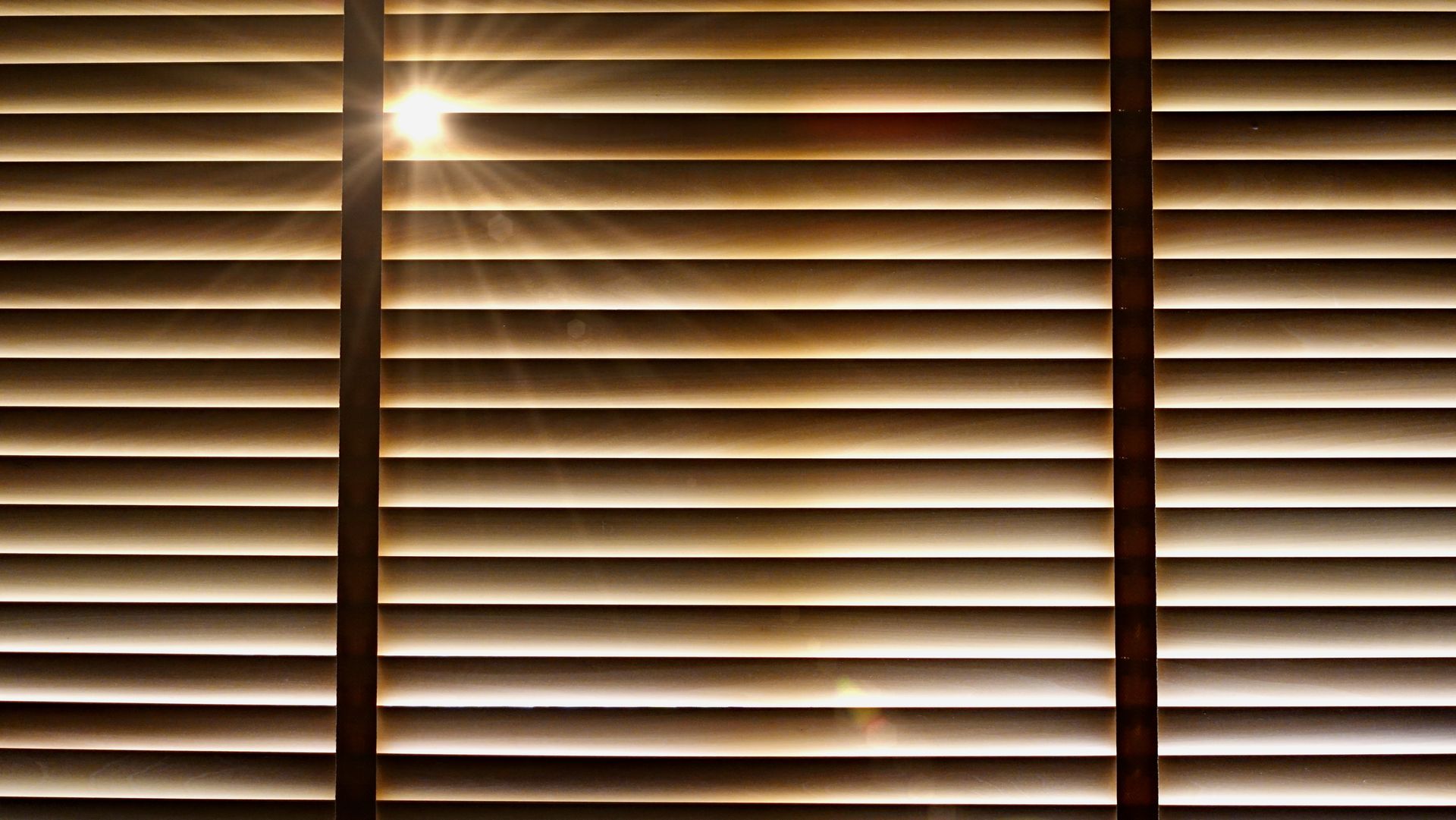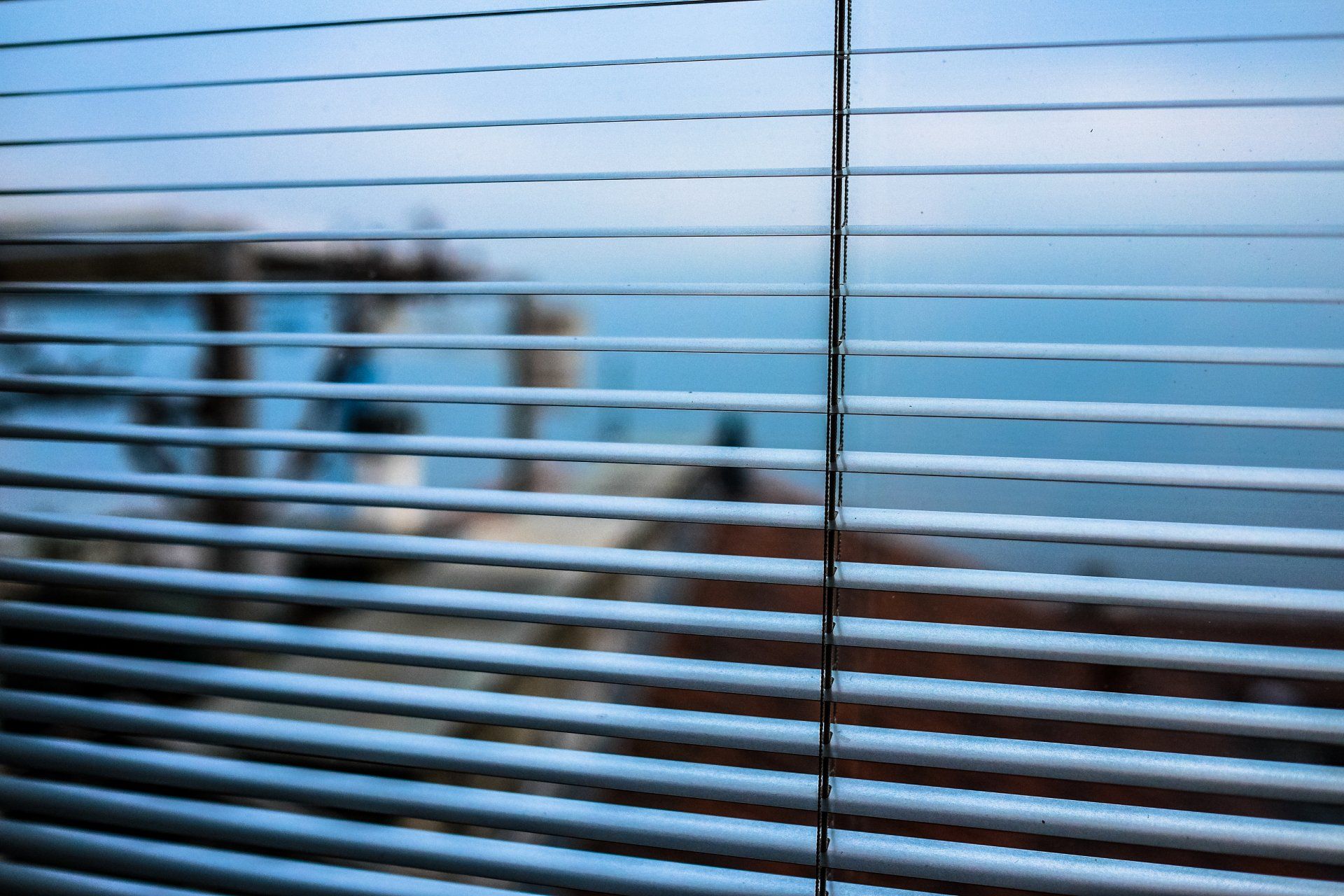Everything You Need to Know About Security Screen for Sliding Glass Door
Burglars can break into homes in just 2 minutes. Sliding patio doors are their favorite targets, especially when you have them in secluded areas of your home.
Security screens on sliding glass doors are the foundations of protection against break-ins. These specialized screens stop criminals from tampering with locks and breaking glass. You can still enjoy fresh air flowing through your home. Your sliding glass door's security screens protect you 24/7 without affecting your home's look or function.
Let's look at everything you should know about picking and setting up the perfect security sliding doors for your home. We cover different types, important features, and ways to install them. You'll learn how to make smart choices that will keep your home safer with high security sliding glass doors.
Why Sliding Glass Doors Need Security Screens
Sliding glass doors beautifully connect indoor and outdoor spaces. These doors also happen to be one of your home's weakest entry points. A security screen for sliding glass door system can protect your home from these risks.
Common vulnerabilities of sliding glass doors
The attractive features of sliding doors create security risks. Most of these doors sit on exposed tracks instead of hinges. Burglars can lift them right off their tracks. The doors use basic latching mechanisms rather than deadbolts. Intruders can break these locks by shaking the door until the mechanism fails.
The glass itself poses a risk. Burglars can break the tempered glass with a heavy object. The glass shatters into small pieces that won't hurt anyone. This lets intruders enter safely.
The location of sliding doors makes them even more vulnerable. These doors often sit at the back of homes where neighbors can't see them. Criminals get plenty of time to break in without anyone noticing.
Statistics on sliding door break-ins
The numbers paint a worrying picture. Research shows that 22% of home burglaries happen through back sliding doors. The FBI reported over 847,522 burglaries and home break-ins across the United States in 2022.
The timing might surprise you. Most break-ins happen between 10:00 a.m. and 3:00 p.m. Thieves know homeowners are at work during these hours. Your home needs protection day and night with secure sliding screen doors.
The dual benefits of security and convenience
Sliding security screen doors protect your home without compromising its look. Other security measures block views or limit how you use the door. Security screens keep your door looking great while providing reliable protection.
These screens offer practical benefits too. They let fresh air flow through your home but keep bugs out. Quality security screens can cut heat transfer by up to 66% during summer. Your energy bills will thank you.
Security screens protect against nature's threats too. Tests show they block flying embers during wildfires. They also stop debris during storms and hurricanes. You get year-round protection from both people and weather.
Security screens for sliding glass doors let you keep everything you love about these doors. The views stay clear and outdoor access stays easy. Your home's security gets substantially better too with these sliding door security screens.
Types of Security Screen Doors for Sliding Glass Doors
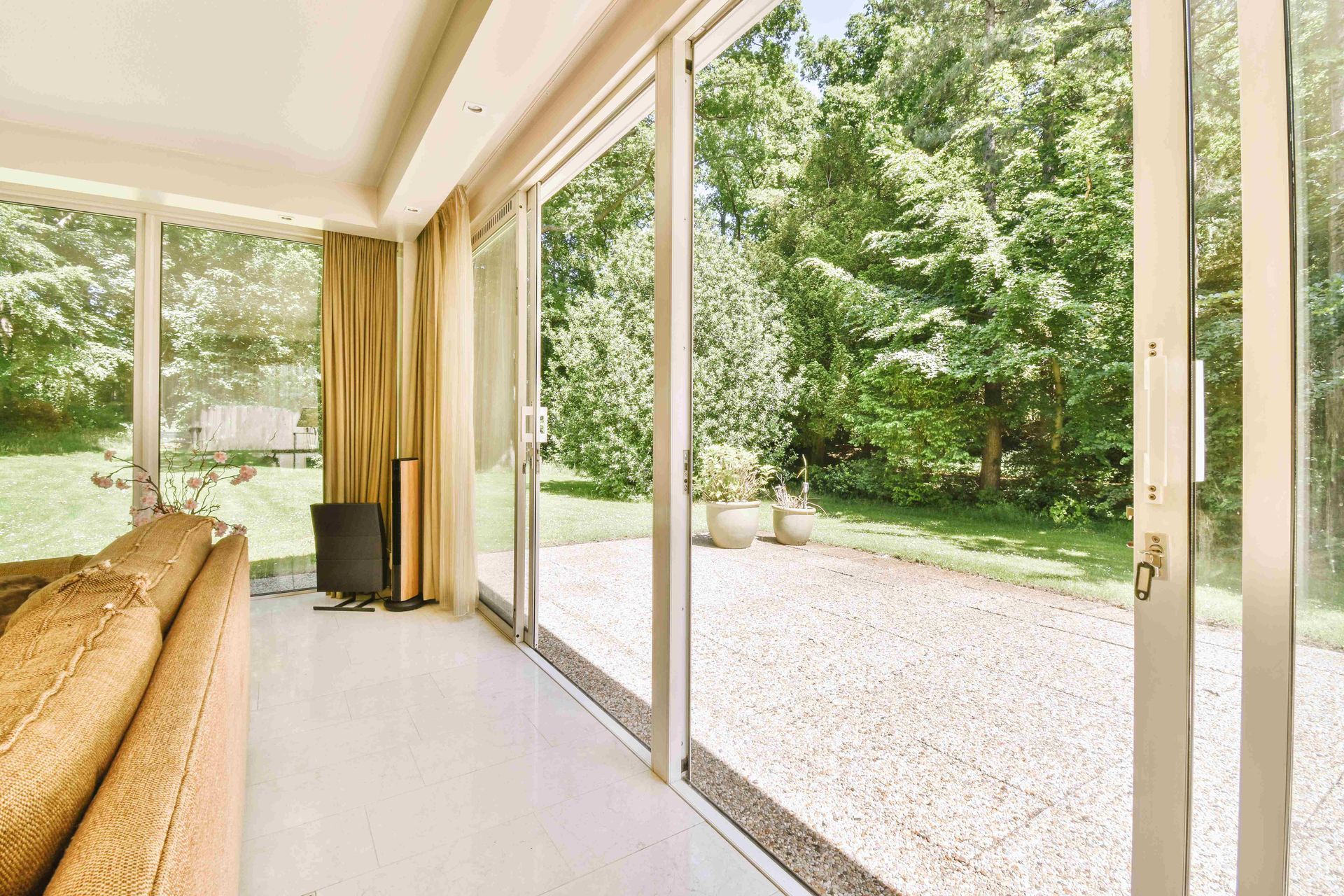
Picking the right security screen for sliding glass door needs a good understanding of what's available and how each type can help you. Each choice comes with its own mix of strength, visibility, and protection features.
Mesh security screens
High-tensile woven mesh screens are the best choice to protect sliding doors. These screens use marine-grade stainless steel (316 grade) that resists cutting, holds up against heavy hits, and won't corrode. The tight weave pattern keeps intruders out but lets you see through clearly and keeps air flowing.
The Meshtec Advanced Screen System shows just how good these screens can be. Its high-tensile strength stainless steel mesh fights off common break-in attempts and stands strong against cutting. These mesh screens also handle scratches and pet claws really well, which makes them perfect if you have cats or dogs, offering excellent pet protection.
Grille security screens
Some homeowners prefer the classic look of grille security screens. These tough screens use ¼" extruded aluminum grilles with ½" x 3 ⅙" aluminum frames for extra strength.
Diamond patterns are a popular choice. The heavy-duty aluminum makes them strong but light. You might not see through them as well as mesh screens, but they keep you safe and cost less. You can choose from lots of colors to match your house's look with a durable powder coat finish.
Perforated metal screens
Perforated aluminum security screens give you the best of everything - strength, clear views, and good airflow. These screens have small, evenly-spaced holes that take up about 40% of the surface. You can see through them easily and get fresh air while staying protected.
Perforated metal screens come with some great benefits. Dust won't stick to them, they cut down on glare, and they can take quite a beating. You'll get about 60% of available light inside while keeping a clear view out. The smooth surface makes cleaning a breeze.
Smart security screen options
Modern security screens pack some impressive tech features. Triple-point locking systems are better than regular locks because they secure your door in three places along the frame. Some screens even have special features that let kids get out fast in emergencies without compromising security.
The top-of-the-line models combine several security features. These screens meet strict standards for impact resistance, cut resistance, and keeping intruders away. They cost more than basic options, but they give your sliding glass door complete protection with forced entry resistance.
Key Features to Look for in Sliding Security Doors
Choosing a security screen for sliding glass door systems requires focus on specific quality features that will give you reliable protection beyond just an esthetic upgrade. These critical elements will help you invest wisely in your home's security.
Material strength and durability
Premium sliding security door construction starts with 316 marine-grade stainless steel mesh. The mesh measures 0.9mm - about 12.5% thicker than standard security products. This superior material resists cutting attempts and stands up to harsh weather, especially when you have coastal environments.
Quality screens must pass strict Australian Standards through extensive testing of impact resistance, force resistance, and cutting protection. The frames should use 6063-T5 architectural-grade aluminum to ensure a rust-free and durable construction even after years of weather exposure.
Lock mechanisms
The security of your door depends on its locking system. High-quality security screen doors for sliding glass doors come with 3-point locking systems. These secure the door at three points - bottom, center, and top. This design makes it nearly impossible for intruders to break in with standard burglar tools.
The best designs feature tamper-proof locks with protective housing that blocks access to the locking mechanism. Advanced systems also include anti-lift guards to stop a common break-in method where thieves try to lift doors off their tracks.
Frame construction
The frame's build quality determines its longevity. Top security screens use special retaining systems where the mesh grips inside frame recesses under tension. This eliminates weak points like screws or rivets and creates a sleek look.
The attachment method to your home structure matters too. Quality installations use specialized mounting hardware such as torx head screws. These become unreachable once the door closes, so nobody can remove them from outside. The panel interlock system ensures maximum security and smooth operation.
Mesh quality and visibility
Your security screen should offer more than just protection. Premium mesh provides clear views from inside while blocking outside visibility. A well-designed mesh improves airflow and can cut energy costs. Some systems block up to 60% of harmful UV rays.
The best mesh passes independent security tests without sacrificing optical clarity. This lets you enjoy unobstructed views while staying protected. The full view design ensures you don't compromise on aesthetics while enhancing your home's security.
Installation Options for Sliding Security Screen Doors
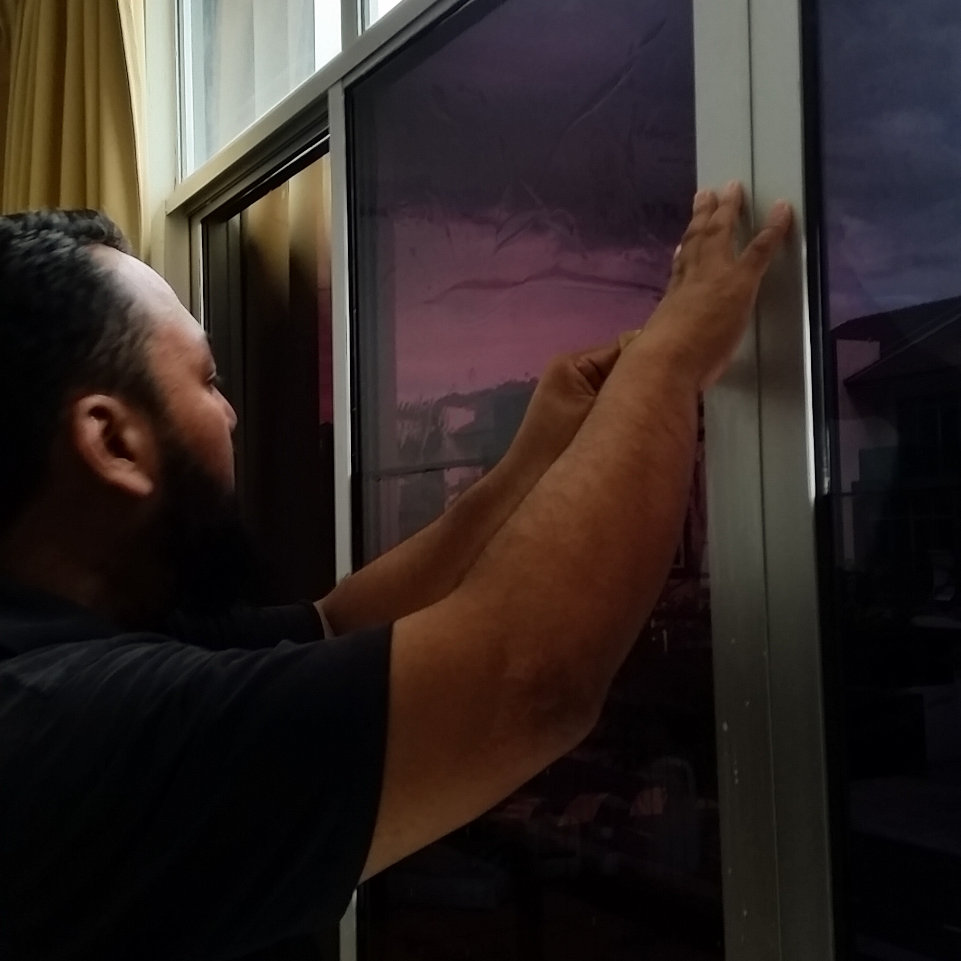
You need to make a crucial decision about the installation method after picking the right security screen for sliding glass door protection. The quality of installation affects how well it protects you and how long it lasts.
Common installation challenges
Getting exact measurements is the biggest problem. Security screens need precise measurements—a tiny 1mm mistake can cause major fitting problems. The door must also sit perfectly on its tracks to work smoothly.
Track problems show up often. Tracks get sticky or stiff when dirt builds up or people don't maintain them properly. Clean tracks and good preparation before installation help avoid future problems.
Cost considerations
The cost difference between professional and DIY installation is substantial. Professional installers charge between $200 and $350, and standard installations take about 30 minutes. If you're looking for sliding security screen doors near me, it's worth considering the benefits of professional installation.
DIY looks cheaper upfront—basic security screen kits for sliding doors run from $130 to $550. In spite of that, these prices don't include tools you'll need, materials to fix mistakes, or what you'll pay a professional to fix poor installation.
A professionally installed stainless steel mesh security screen door costs between $900 and $1,200, while DIY might save you $300-$500 at first. The savings often disappear when you factor in wasted materials from mistakes, tool purchases, and security risks from incorrect installation.
Secure Your Space with a Security Screen Door for Sliding Door
A security screen for sliding glass door is one of the smartest ways to protect your home's most vulnerable entry point. It keeps intruders out without blocking airflow or affecting your view. When you choose the right screen, you're investing in year-round security, energy savings, and peace of mind.
Ready to upgrade your home's security? Contact
ScreenMaster today and let us help you find the best security sliding door for your home.
FAQs
What are the best ways to secure a sliding glass door?
To secure a sliding glass door, install a security screen door, use a security bar, upgrade to a multi-point locking system, apply security film to the glass, and ensure proper track maintenance. These measures significantly enhance protection against break-ins.
How effective are security screens for sliding glass doors?
Security screens are highly effective for sliding glass doors. They provide a robust barrier against intruders, allow natural ventilation, and can reduce heat transfer by up to 66%. Quality screens are tested to withstand cutting, impact, and even severe weather conditions.
What features should I look for in a sliding security screen door?
Look for high-tensile stainless steel mesh, a strong aluminum frame, triple-point locking mechanisms, and proper installation methods. Ensure the screen meets relevant security standards and offers good visibility and airflow. Consider features like security snap covers for added protection.
Can I install a security screen door for my sliding glass door myself?
While DIY installation is possible, professional installation is highly recommended. Proper installation is crucial for the security screen's effectiveness and to maintain warranty coverage. Even small measurement errors can compromise the door's security. Custom installation by professionals ensures optimal performance.
How much does a security screen for a sliding glass door typically cost?
The cost of a professionally installed security screen door for sliding glass doors typically ranges from $900 to $1,200. While DIY options might seem cheaper initially, the potential for errors and compromised security often makes professional installation more cost-effective in the long run. For residential sliding glass security doors, investing in quality and professional installation is key to ensuring long-term protection and peace of mind.
